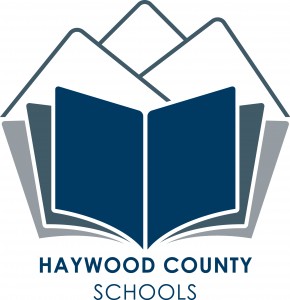Elementary Schools Overview
Haywood County Schools
Haywood County Schools is a PK–12 graded school district with 16 schools serving Haywood County, North Carolina. At the elementary level, a clear, research based curriculum focus is in place that ensures students get the best possible instruction at their ability levels.
Literacy
The Balanced Literacy model is the instructional framework used at the elementary level. Balanced literacy begins with creating a genuine appreciation for good literature. It includes teaching phonics, grammar skills, reading and comprehension strategies, and writing forms and skills. Direct and indirect reading instruction, shared reading, and independent reading experiences must be provided. Students’ individual needs are met as balanced reading is deep-rooted in the belief that teachers should be constantly aware of students’ individual needs and progress. As such, instruction is tailored to the student as they must be proficient as readers, writers, and speakers to be successful, contributing adults and lifelong learners.
Classroom instruction is based on The Comprehension Toolkit, Lucy Calkins’ Reading Workshop, and Literature Circles. The Comprehension Toolkit focuses on reading, writing, talking, listening, and investigating, to deepen understanding of nonfiction texts. With a focus on strategic thinking, this toolkit’s lessons provide a foundation for developing independent readers and learners. It also provides an alternative to the traditional assign and correct curriculum. Instead, the teaching and learning focus is on strategic thinking and explicit instruction via modeling, practice and application.
The Reading Workshop developed and researched by Lucy Calkins and the Reading and Writing Project of Teachers College Columbia University provides the basis for what occurs as students read independently. Reader’s Workshop emphasizes the interaction between readers and text. Students learn to ask questions, make connections with prior knowledge and previously read texts, and ask questions to clarify faulty comprehension they recognize has occurred. During independent reading time, the teacher engages students in conference regarding what they are reading either independently or in groups. This process allows children to delve deeper into a text as they ask questions about the text, engage in character analysis, or determine the themes present in a text. Students develop higher order thinking skills through this process.
Our district believes volume of reading is hugely important to students’ development as a reader and in the development of the love for reading. Students have choice in what they read independently.
Mathematics
The Common Core Standards stress the importance of a conceptual understanding of mathematics. Research shows that students with a good understanding of mathematical concepts do better in higher level math classes in high school. Moreover, as a result of conceptual instruction more students are able to access those higher level classes at the high school level as well.
We, at the elementary level, use Investigations as the framework for math instruction. Additionally, resources provided by The North Carolina Department of Public Instruction K – 12 Math section are used to guide instruction as well.
Writing
Lucy Calkins’ Units of Study in Writing are the framework for writing instruction at the district level. Lucy Calkins teaching frameworks for writing instruction across the curriculum. We focus on narrative, opinion, and informational writing at all grade levels. With narrative writing, students are writing stories. With opinion writing, students pick a topic and share their opinion of that topic, and with informational writing, they are explaining a topic to the reader.
Science
At the elementary level, the focus is on STEM (Science, Technology, Engineering, and Math). Instruction is based on the NC Essential Standards for Science. We use the STEMScopes curriculum which is aligned directly with these standards.
K – 2 Essential Standards
3 – 5 Essential Standards
Social Studies
AS with math, the teaching of social studies is based on a conceptual understanding of the topics and content. Instruction is guided by the use of the NC Essential Standards for Social Studies. An overview of the curriculum can be found at this link: http://ssnces.ncdpi.wikispaces.net/Essential+Standards+%26+Unpacking+Documents
